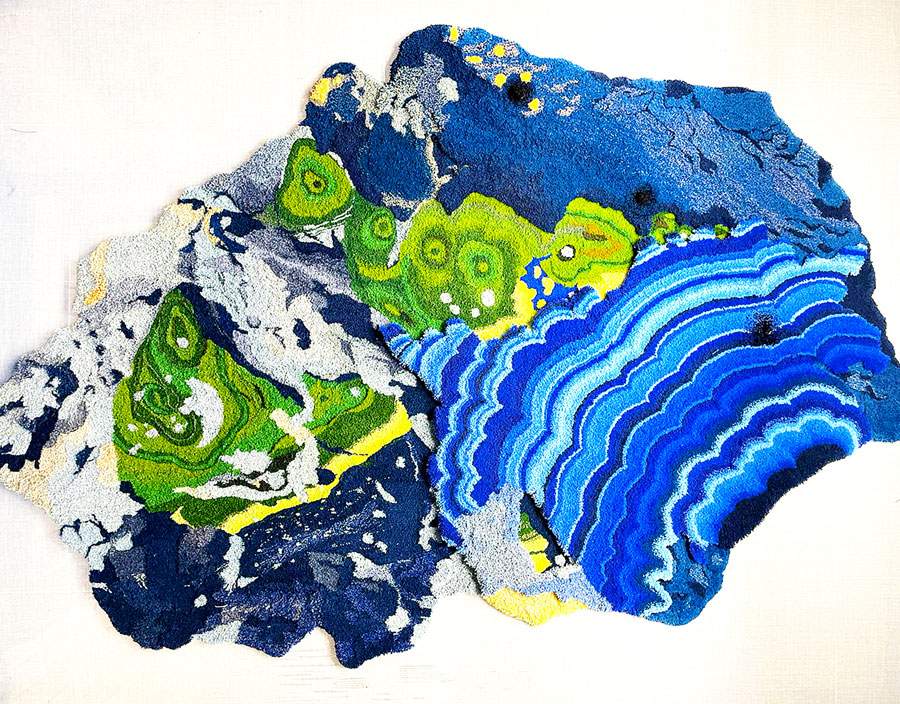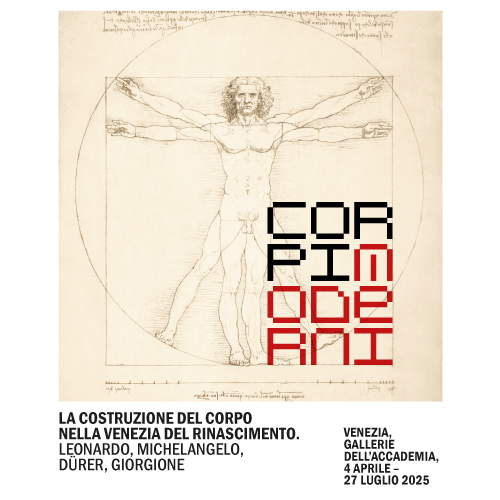African tradition and Flemish weaving. Otobong Nkanga's exhibition at the Castello di Rivoli
Opening on September 25 at the Castello di Rivoli, and on view until January 30, 2022, is the solo exhibition Ropes Curling Around Mountains by Otobong Nkanga (Kano, Nigeria, 1974), one of the leading artists on the contemporary African scene: her research tackles urgent issues related to the ecological and environmental crisis, resource exploitation and sustainability by investigating the histories of colonialism, its repercussions on the social fabric and new forms of material art. For Nkanga, this is a comeback: in 2017, in fact, the artist participated in the exhibition The Emotion of COLORS in Art held at the Castello di Rivoli and GAM in Turin on the occasion of which in the Manica Lunga he exhibited the workKolanut Tales: Slow Stain (I racconti della noce di cola: Slow Stain, 2012-2017) that later became part of the Museum’s Collections thanks to the Gift of the Supporting Friends and Benefactors of the Castello di Rivoli.
The exhibition, designed specifically for the rooms on the third floor of the Castello di Rivoli, is conceived as a large site-specific project. Drawing a novel landscape, the installation includes irregularly shaped works-carpets inspired by minerals, such as quartz and malachite, whose healing properties have been known since antiquity. The carpets extend into space through very long handwoven ropes that in turn connect multiple concave sculptural objects that suggest manipulation by visitors. Made of wood, glass and terracotta, they house additional organic materials within them or convey sounds, endowing the work with a performative and sensually relational component. Therefore, the artist develops his exhibition that winds through the five large rooms on the third floor of the Castle at floor level, intentionally rejecting the verticality of museum walls to embrace horizontality, associated with the notion of geography and travel understood as transit and connection between distant points.
The installation brings into dialogue the different cultural traditions interwoven in the artist’s biography: born in Nigeria and raised in France, currently residing in Antwerp. While the presence of objects, including minerals and other organic materials, harkens back to the amulets that in some African traditions are given as gifts at the birth of a child, or to herbs used for their healing properties since antiquity, the carpet reconnects to the historical skill of European Flemish weavings. During her studies in Paris, Nkanga was a student of artist Giuseppe Penone (Garessio, 1947): in his work attentive to materials and their transformations, in fact, the legacy of Arte Povera is evident at the level of the most current international developments in contemporary art in the world.
Otobong Nkanga, who currently lives and works in Antwerp, Belgium, studied at the Obafemi Awolowo University in Ile-Ife, Nigeria, the École Nationale Supérieure des Beaux-Arts in Paris, the Rijksakademie van beeldendekunsten in Amsterdam, DasArts Amsterdam, and was awarded a residency at the DAAD in Berlin. Her work is in the collections of numerous international institutions (including Centre Pompidou, Paris; Tate Modern, London; Stedelijk Museum, Amsterdam; Castello di Rivoli Museo d’Arte Contemporanea) and she has exhibited in shows and biennials around the world, as well as had solo exhibitions of her work at the Museum of Contemporary Art (MCA) Chicago (2018), Tate Modern and Tate St. Ives, UK. She was awarded the 8th Yanghyun Art Prize in 2015 and the Belgian Art Prize in 2017. Nkanga’s project Carved to Flow was presented the same year at documenta 14, Kassel-Athens. His most recent solo exhibitions were held at Zeitz Mocaa, Cape Town and Tate St. Ives, UK (2019-2020) and Middlesbrough Institute of Modern Art (MIMA), UK (2020-2021). In 2019 Nkanga was resident artist at Gropius Bau in Berlin where she further developed the Carved to Flow project, culminating in the solo exhibition There’s No Such Thing as Solid Ground in 2020. In 2019, the artist received a Special Mention at the 58th International Art Exhibition of the Venice Biennale; was awarded the Best Permanent Installation Prize at the 14th Sharjah Biennale (with Emeka Ogboh); won the prestigious Peter-Weiss-Preis; and was also awarded the Flemish Cultural Award for Visual Arts - Ultima. Also in 2019 the artist was the first recipient of the Lise Wilhelmsen Art Award Program, and in the fall of 2020 she presented the solo exhibition Uncertain Where the Next Wind Blows at Henie Onstad Kunstsenter in Høvikodden, Norway. In June 2021, the artist presented the retrospective When Looking Across the Sea, Do You Dream? organized in collaboration with the Castello di Rivoli Museo d’Arte Contemporanea at the Centre d’art contemporain Villa Arson in Nice.
The exhibition is part of a collaborative project with the Centre d’art contemporain in Villa Arson, Nice, where the first retrospective in France dedicated to Nkanga is being held (until Sept. 19, 2021). Curated by Eric Mangion, the Nice exhibition focuses on the artist’s major works to date. On the occasion of this double exhibition, the Castello di Rivoli and Villa Arson are co-publishing a scholarly catalog with new essays and interviews by the curators, images of the works exhibited in the two institutions, fact sheets on the works, and a rich apparatus dedicated to the artist’s exhibition history, from his beginnings to the present. The exhibition is realized with the contribution of the Piedmont Region. The project is a winner of the public notice PAC2020 - Plan for Contemporary Art, promoted by the General Directorate for Contemporary Creativity of the Ministry of Culture.
Photo: detail of the work in progress for the exhibition at Castello di Rivoli
 |
| African tradition and Flemish weaving. Otobong Nkanga's exhibition at the Castello di Rivoli |
Warning: the translation into English of the original Italian article was created using automatic tools. We undertake to review all articles, but we do not guarantee the total absence of inaccuracies in the translation due to the program. You can find the original by clicking on the ITA button. If you find any mistake,please contact us.




























